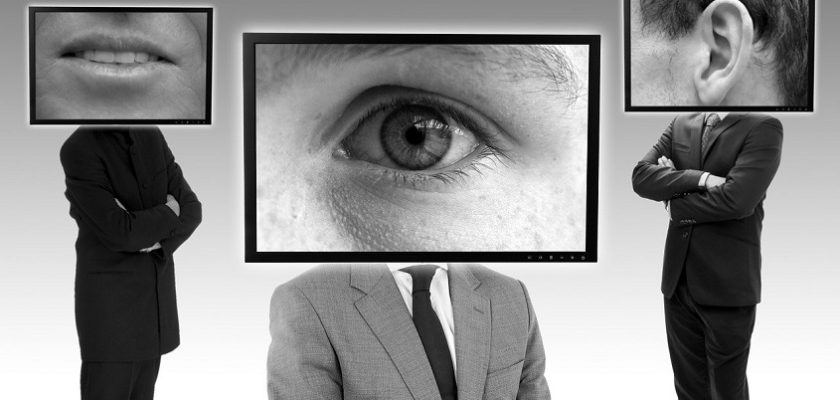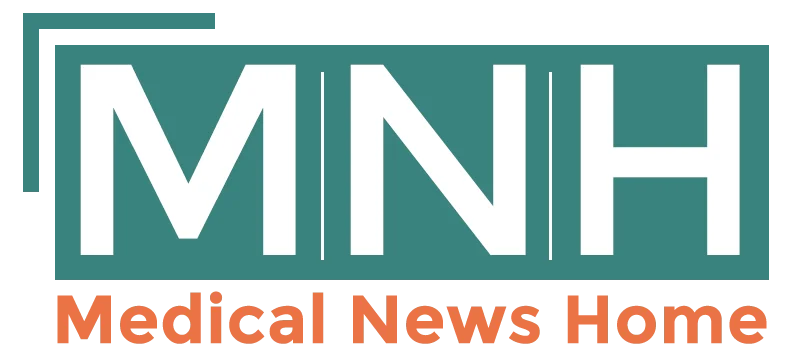The Real Cost of Medical Identity Theft: How to Keep Your Health Information Safe
- Posted on April 26, 2023
- By Vishakha Yadav
- Read 8 minutes

Medical identity theft is a serious issue that can have devastating consequences for both your finances and your health. It occurs when someone steals your personal information and uses it to obtain medical treatment, prescription drugs, or other health services in your name. This type of identity theft is particularly dangerous because it can result in incorrect medical records, misdiagnoses, and even life-threatening medical procedures.
It’s important to protect your health information to avoid becoming a victim of medical identity theft. This means taking steps to safeguard your medical records, health insurance information, and other sensitive personal information. Not only can medical identity theft lead to financial losses, but it can also impact your ability to receive proper medical care.
We’ll explore the real cost of medical identity theft, including the financial, physical, and emotional toll it can take. We’ll also provide tips and strategies for protecting your health information and preventing medical identity theft. Additionally, we’ll offer resources for assistance in case of medical identity theft. By being aware of the risks and taking proactive steps to protect your health information, you can safeguard your well-being and avoid the devastating effects of medical identity theft.
The Real Cost of Medical Identity Theft
Financial Costs of Medical Identity Theft
Medical identity theft can have significant financial repercussions for the victims. Here are some ways in which it can impact their finances:
- Fraudulent Medical Bills: One of the most common financial costs of medical identity theft is receiving bills for medical services that the victim did not actually receive. This can lead to disputed charges, lengthy billing disputes, and potentially damaging the victim’s credit score.
- Legal Fees: Victims of medical identity theft may need to hire legal counsel to resolve disputes, challenge fraudulent bills, or clear their name. Legal fees can quickly add up and become a significant financial burden for the victim.
- Out-of-Pocket Expenses: Victims of medical identity theft may incur out-of-pocket expenses to rectify the situation, such as obtaining copies of medical records, paying for credit monitoring services, or seeking professional assistance to restore their identity. These costs can add up over time and impact the victim’s financial stability.
Physical Costs of Medical Identity Theft
The physical costs of medical identity theft can have serious implications for the victim’s health and well-being. Some of the potential physical costs may include:
- Incorrect Medical Treatment: If a thief uses the victim’s medical identity to receive medical care or treatment, it can result in incorrect diagnoses, incorrect medication, or unnecessary medical procedures. This can pose serious health risks to the victim, leading to physical harm and potential long-term health consequences.
- Medical Errors: Medical identity theft can result in incorrect information being added to the victim’s medical records, such as incorrect allergies, medical history, or blood type. This can lead to medical errors in future treatments or emergencies, posing a risk to the victim’s health and well-being.
Emotional Costs of Medical Identity Theft
The emotional toll of medical identity theft can be significant and should not be overlooked. Victims may experience a range of emotions, including:
- Stress and Anxiety: Discovering that one’s personal health information has been compromised can be extremely stressful and anxiety-inducing. Victims may worry about the potential consequences, such as financial strain, impact on their health, and the time and effort required to resolve the situation.
- Fear of Repercussions: Victims of medical identity theft may fear the potential repercussions, such as damage to their credit score, negative impact on their medical history, and the potential for ongoing identity theft issues. This fear can cause emotional distress and anxiety.
- Loss of Trust: Medical identity theft can lead to a loss of trust in the healthcare system and the security of personal health information. Victims may feel violated and betrayed, resulting in emotional distress and a loss of confidence in the healthcare system.
Understanding Medical Identity Theft
How medical identity theft happens
Medical identity theft occurs when someone uses another person’s name, social security number, health insurance number, or other personal identifying information to obtain medical care or prescription drugs. There are several ways that medical identity theft can happen:
- Stealing medical records: Medical records contain valuable personal information that thieves can use to commit identity theft. Thieves can obtain medical records by stealing them from medical offices, hacking into electronic medical records, or bribing employees to access records.
- Phishing scams: Thieves may use phishing scams to trick people into providing personal information, such as their social security number, health insurance number, or other identifying information. They may pose as a medical provider or health insurance company to gain trust and obtain sensitive information.
- Insider theft: Sometimes, medical identity theft is committed by someone who has access to your medical records, such as a healthcare provider or insurance company employee. These insiders may use your personal information for their own financial gain or to sell to other criminals.
Common targets and methods used by thieves
Medical identity theft can happen to anyone, but there are certain groups that are more vulnerable to this crime. The following are common targets of medical identity theft:
- Elderly individuals: Seniors are often targeted because they may have more medical issues and require more medical care, making it easier for thieves to use their identity to obtain services.
- Individuals with chronic illnesses: People with chronic illnesses may have more medical appointments and require more prescription drugs, making them a target for thieves looking to exploit their insurance coverage.
- Children: Children’s identities are valuable because they have clean credit histories and their medical records may not be checked as thoroughly as adults. Thieves may use a child’s identity for years before it is discovered.
Common methods used by thieves include:
- Obtaining medical records: As previously mentioned, thieves may obtain medical records through theft or hacking.
- Using stolen credentials: Thieves may use stolen social security numbers, health insurance numbers, or other personal identifying information to obtain medical care or prescription drugs.
- Creating fake medical records: Thieves may create fake medical records using a victim’s personal information to obtain medical care or prescription drugs.
How to Protect Your Health Information
Tips for protecting your medical records and other health information
- Use Strong Passwords: Use strong and unique passwords for your medical accounts and change them frequently. Avoid using obvious passwords like your name, birthdate, or social security number.
- Be Careful with Your Personal Information: Do not share your personal information with anyone unless it is required for a medical purpose. Be cautious while giving personal information over the phone or through email.
- Keep Your Computer Secure: Install antivirus software and firewalls on your computer to prevent hacking attempts. Keep your software and operating system up-to-date to fix any vulnerabilities.
- Be Careful with Email Attachments: Do not open email attachments or click on links from unknown senders. These attachments or links could contain malware that could compromise your computer or steal your information.
- Monitor Your Medical Bills: Review your medical bills carefully for any services or medications that you did not receive. If you find any discrepancy, report it immediately.
Strategies for preventing medical identity theft
- Shred Sensitive Documents: Shred all sensitive documents that contain your personal information such as medical bills, prescriptions, and insurance statements.
- Limit the Information You Share: Be careful about sharing your personal information such as your social security number, date of birth, or medical history.
- Check Your Credit Report: Check your credit report regularly to monitor for any suspicious activity that may indicate medical identity theft.
- Be Wary of Free Medical Offers: Be cautious of free medical offers, as these could be a way for scammers to collect your personal information.
- Keep Your Medical Information Safe: Keep your medical information safe by not sharing your medical records or prescriptions with anyone unless it is required for medical purposes.
Resources for assistance in case of medical identity theft
- Contact Your Medical Provider: If you suspect that you are a victim of medical identity theft, contact your medical provider immediately to report the issue.
- Contact Your Insurance Provider: Contact your insurance provider and inform them of the issue. They can help you monitor your medical bills and medical records for any suspicious activity.
- Contact the Federal Trade Commission: File a report with the Federal Trade Commission (FTC) to report medical identity theft. The FTC can help you with identity theft issues and provide support and resources.
- Contact Law Enforcement: If you suspect that you are a victim of medical identity theft, contact your local law enforcement agency and report the issue. They can investigate the issue and help you to prevent any further damage.
Frequently Asked Question
- Can medical identity theft affect my insurance coverage?
Yes, medical identity theft can have a negative impact on your insurance coverage. If a thief uses your health insurance information to obtain medical treatment, it may use up your insurance benefits and leave you with insufficient coverage for your own medical needs. Additionally, if incorrect information is added to your medical records, it could impact your insurance coverage, resulting in denied claims or higher premiums.
- Is it possible for medical identity theft to go undetected?
Yes, it is possible for medical identity theft to go undetected for a long time. Thieves may use your identity to receive medical treatment or prescription drugs, but if the bills are sent to the wrong address or you do not receive regular medical care, it may be months or even years before you realize that something is wrong. That’s why it’s important to regularly review your medical records and insurance statements for any signs of fraudulent activity.
- Can medical identity theft impact my job prospects?
Yes, medical identity theft can impact your job prospects, particularly if the thief’s medical history is added to your own records. If an employer performs a background check or reviews your medical records as part of the hiring process, they may see incorrect information or a history of medical issues that are not your own. This could lead to discrimination or even job loss.
- What should I do if I suspect medical identity theft?
If you suspect medical identity theft, the first step is to contact your healthcare provider and insurance company to report the issue. You should also obtain a copy of your medical records to review for any signs of fraudulent activity. It’s important to document any communications with your healthcare provider or insurance company, as well as any bills or statements you receive that are not related to your own medical care. You may also want to consider placing a fraud alert on your credit report and monitoring your credit activity closely.
